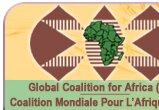





|
 |
|
1996 ECONOMIC COMMITTEE MEETING
Addis Ababa, Ethiopia, August 26-27, 1996
|
|
The opening session was chaired by Dr. Kwesi Botchwey and was followed by comments by the GCA Executive Secretary Ambassador Ahmedou Ould-Abdallah and by the ECA Executive Secretary Mr. K.Y. Amoako.
In the opening address the Prime Minister of Ethiopia, H.E. Meles Zenawi, emphasized the importance of international support and of a working partnership. He stressed that much of the instability in African countries was due to the lack of social and economic development and that the development of Africa was in the worlds interest.
Agriculture was one of the subjects discussed and it was emphasized that while agriculture is still the most important sector of the economy for most Sub-Saharan African countries, its performance often remains below expectations. In this connection, the discussion focused on the participation and empowerment of farmers and of stakeholders, and the role of women was stressed as an essential element of success. The importance of a government-wide approach to the development of agricultural growth strategies consistent with environmental concerns, and the allocation of necessary resources was emphasized as was the major role that should be played by the private sector in the implementation of those strategies. However, the most important problems faced by African farmers are the availability of financing, the possibility of fair pricing and access to seeds, fertilizer and technology at reasonable costs. It was agreed that the extent of public resources allocated to the agricultural sector is a determinant factor. The conference of agricultural ministers and the GCA can serve as clearing houses for comparative experiences, an exercise that was begun at this Economic Committee Meeting.
FAO Director-General Jacques Diouf summarized the FAOs preparations for the Food Security Summit. He emphasized the importance of total mobilization within countries for rapid agricultural growth and drew attention to the serious under-utilization of existing water resources for the purpose of irrigation.
The debt issue was also discussed and the participants agreed that the proposed WB-IMF initiative to provide debt relief to highly indebted poor countries deserved support. Concerning the issue of supply response to economic reform - the main agenda item in the next GCA Policy Forum - issues were raised. The need for economic reforms was emphasized as was the need for political and cultural reform and for a strong private sector.
|
|
|
|





